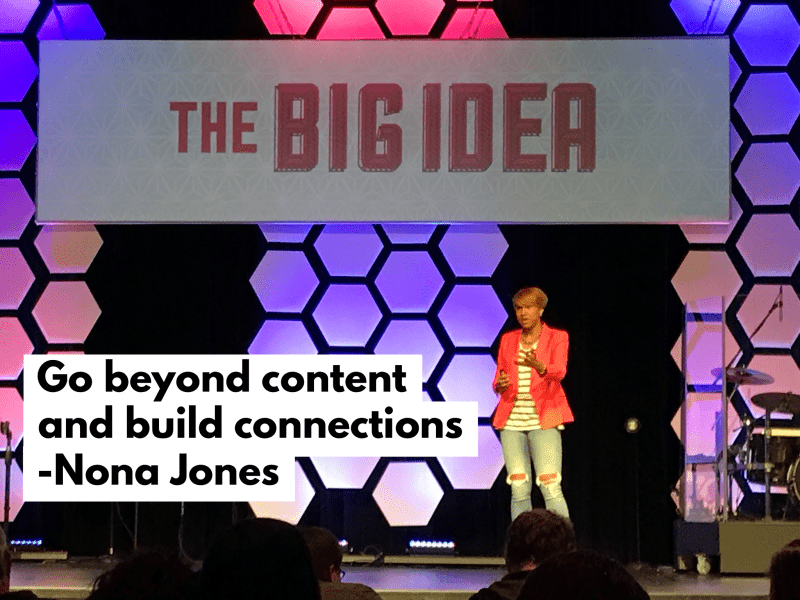Only 2% of 100 million facebook groups are faith-based. 74% of people find a faith-based community meaningful.

According to Google, every month there are more than 30,000 searches of “Church online” or “online church” which is a clear indicator that people are looking for faith-based connections online, and Facebook groups are an important tool to continue being the church outside of our Sunday service, not just a tool to enhance our Sunday experience
“Facebook has been viewed as a tool to promote your church’s content, but research is showing us now that we can have the biggest impact by going beyond content and building connections.”
The best way to build person-to-person connections on Facebook is clearly through groups, where everyone involved gets to post content and interact with other’s content – unlike a page that is one person communicating publicly with a brand – groups allow people to connect with each other around a common goal, focus or topic.
Nona offered some helpful insight (from the inner workings) on how to get started if your church is ready to embrace Facebook groups:
How to get started with facebook groups at your church:
- Define the purpose of your group – Is this for everyone who attends your church, or people who are in your community, or members of individual groups or ministry teams? Is this for casual conversation, debating theology, or swapping hand-me-down clothes for moms? Defining the purpose will give you clear direction as you build your group.
- Assemble your team – This won’t be easy to do alone, and getting a few people to help with reducing the lift required, plus help those volunteers feel more engaged with the purpose of your group. Choosing people who are already active on Facebook will help reduce the onboarding process and get you started right away.
- Make a plan for ensuring your ideal community member can find and enjoy your community – Just like a new campus or a new service time, launch your group in a big way. Send out emails to people who may be interested, post on your church’s Facebook page and mention it in service or in your weekly small groups. Make the name clear enough to be searchable and specific to your group.
- Be intentional about how you want people to engage – clearly outline the purpose of your group and make sure the members know what’s allowed or expected within the group rules. This might include general content like nothing defamatory or derogatory or may include specifically what will be posted like content and events for young families, or upcoming events in the community or prayer requests.
- Keep your community safe as it grows – By having a private group (groups can be either public, private or secret) then your group will be searchable, but you’ll have to approve new member requests. Keep the group safe and relevant by asking a few questions before allowing someone in (are you a member of our church, how long have you attended, or do you meet the suggested demographics for the group).
Creating engagement in your group:
Your group is only as good as the engagement within in. Ste the stage for new members to give them the first impression that engagements are encouraged in the group:
- Welcome new members as they join the group.
- Have your team intentionally reply to new member’s first posts (including tagging other group members who may be able to help with a question or idea)
- Remind members now and then what the purpose of the group is to spark ideas for new conversation.
Would you like more information on the differences between facebook groups and facebook pages? Check out my post here. (hint: It’s time to use both!)